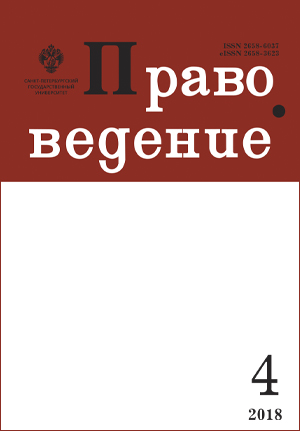Investment technologies оf Islamic banks and prospects for the development of an interest-free banking sector in Russia
DOI:
https://doi.org/10.21638/spbu25.2018.407Abstract
The global financial crisis of 2008-2009 catalyzed a redefining of the basics of the conventional financial model and sought opportunities for its ethical reset. In this regard, investment banking technologies are becoming increasingly important. Nowadays Full Fledged Islamic Banks with their inherent refusal to charge and pay interest and conduct speculative operations influence a new trend in investment banking. Islamic banking offers the solutions to attract alternative sources of finance without making financial policies of countries directly dependent on the cost of credit funds and generates new opportunities for investors. The investment activities of Islamic banks are considered to be one of the most efficient instruments to ensure financial stability and sustainable economic development. Apart from pooling the assets of Muslim investors, Islamic banking mobilizes their spiritual potential. However, in Russian jurisprudence Islamic banking remains an understudied and poorly understood phenomenon. This article addresses the core aspects of Islamic law, prohibitive imperatives and moral compass of Islamic banks. Special attention is paid to the concept of justice in Islamic banking, as well as condemnation of usury in the Christian tradition. In conclusion, the authors propose to adopt the law on investment and trust banking to establish two financial sectors in Russia: interest-bearing and interest-free, and distinguish credit (conventional) commercial banks involved in accustomed usury banking from commercial banks focused on non-usury banking based on the pattern of Islamic banks. In order to establish commercial banks of a new type, the civil concept of trust should be borrowed.
Keywords:
Islamic banking, Islamic bank, investments, unlawful interest (riba), justice, investment-trust banking sector
Downloads
References
Akhmed, Khabib, Khan, Tarikulla. 2010. Risk management in Islamic banking. Hassan M., Lewis M. (eds) Handbook of Islamic banking. Astana, Saryarka Publ.: 160–178. (In Russian)
Downloads
Published
How to Cite
Issue
Section
License
Articles of "Pravovedenie" are open access distributed under the terms of the License Agreement with Saint Petersburg State University, which permits to the authors unrestricted distribution and self-archiving free of charge.




